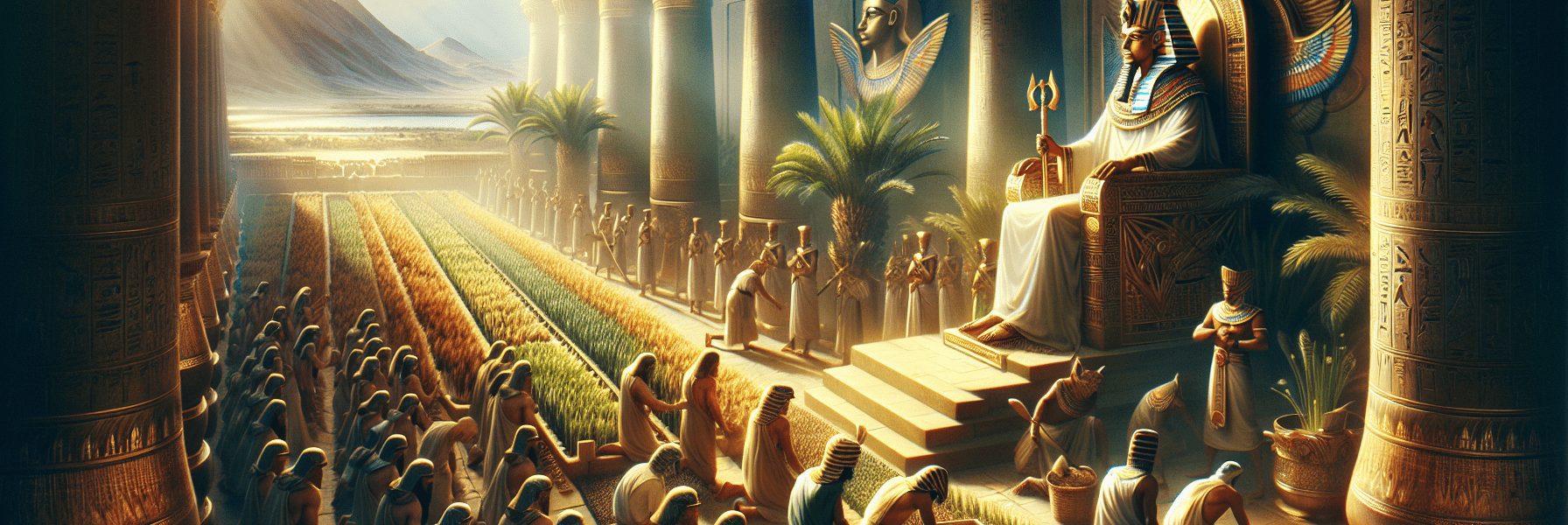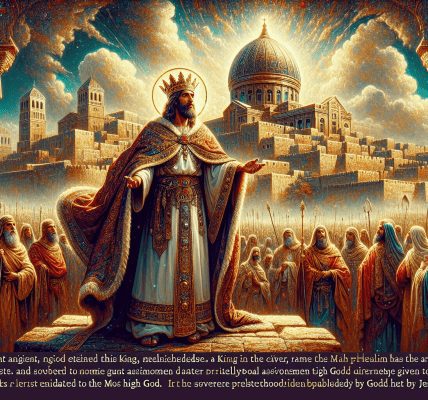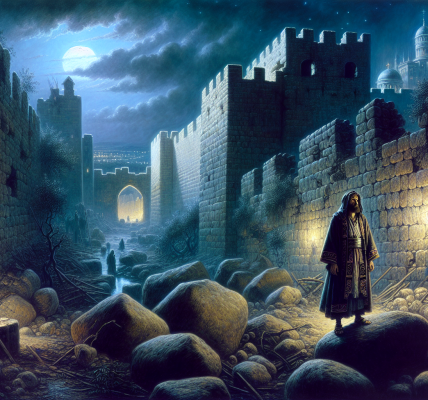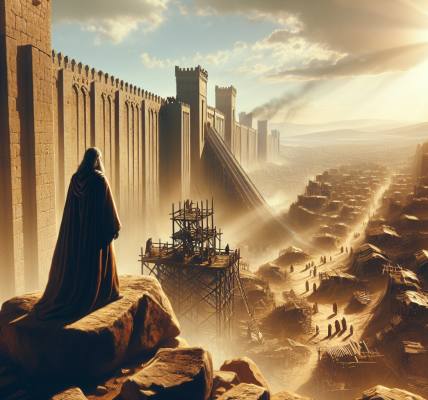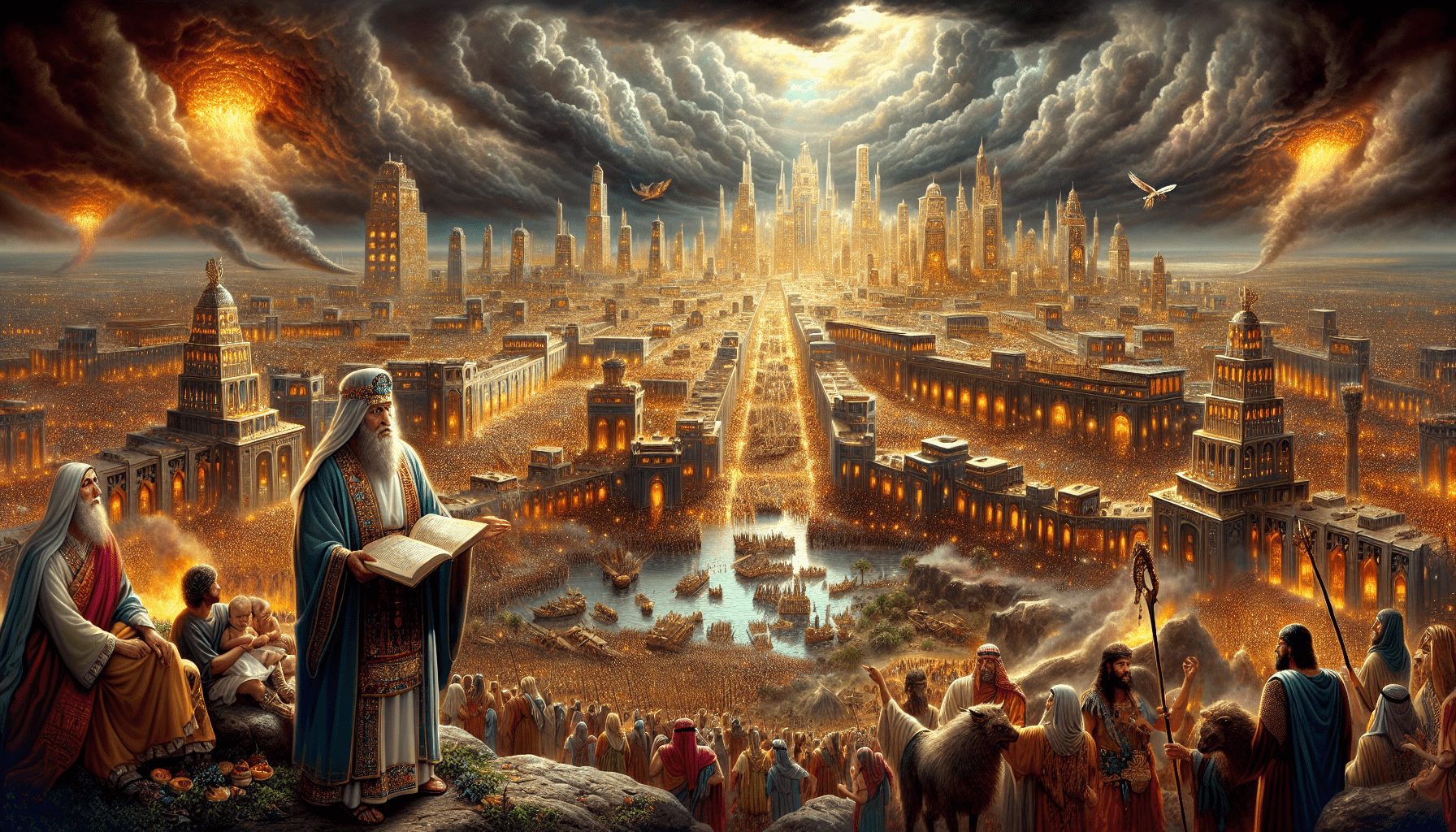**The Burden of Bricks and the Cry of a People**
The sun blazed mercilessly over the land of Egypt, its golden rays beating down upon the fields of the Nile Delta, where the descendants of Israel toiled under the watchful eyes of their taskmasters. Years had passed since the days of Joseph, the beloved son of Jacob, who had once ruled as a prince among the Egyptians. The memory of his wisdom, which had saved Egypt from famine, had long faded from the hearts of the new generation of Pharaohs. Now, the Hebrews were no longer honored guests but a people viewed with suspicion—a foreign multitude growing too numerous, too strong.
Pharaoh, seated upon his gilded throne in the great palace of Memphis, stroked his jeweled scepter as his advisors bowed before him. “Behold,” one of them whispered, “the children of Israel have become more and mightier than we. If war comes, they may join our enemies and fight against us, then escape from the land.”
A shadow crossed Pharaoh’s face. His father had tolerated these people, but he would not. “We must deal shrewdly with them,” he declared, his voice like the low rumble of distant thunder. And so, the decree went forth: the Hebrews would be pressed into forced labor, building the store cities of Pithom and Raamses, monuments to Pharaoh’s glory and chains upon Israel’s freedom.
Taskmasters, cruel and unrelenting, were set over the people. The crack of whips echoed through the air as Hebrew men and women hauled heavy bricks of clay and straw, their backs bent beneath the weight of oppression. The once-fertile land now bore witness to their suffering as they mixed mortar under the scorching sun, their hands raw and bleeding, their spirits crushed beneath the burden of endless toil.
Yet, the more they were afflicted, the more they multiplied. Like reeds by the river, they could not be stamped out. The midwives of the Hebrews, Shiphrah and Puah, feared God more than Pharaoh. When the king summoned them, his eyes burning with malice, he commanded, “When you help the Hebrew women give birth, if it is a son, kill him. But if it is a daughter, let her live.”
But the midwives would not obey. They let the boys live, and when Pharaoh demanded an explanation, they answered with wisdom: “The Hebrew women are not like the Egyptian women. They are vigorous and give birth before the midwives arrive.”
God was pleased with the midwives and blessed them with families of their own, but Pharaoh’s fury grew. He issued a darker decree, one that would stain the Nile with innocent blood: “Every son born to the Hebrews must be cast into the river!”
The wails of mothers pierced the night as Egyptian soldiers tore newborn sons from their arms. The Nile, once a source of life, became a grave. Yet even in the midst of such sorrow, a whisper of hope remained—for God had heard the cries of His people, and His deliverance was near.
The stage was set. A child would rise from the reeds of the Nile, a deliverer would come forth from the house of bondage, and the God of Abraham, Isaac, and Jacob would stretch out His mighty hand to save His people. But for now, the bricks piled higher, the whips fell harder, and the people of Israel cried out to the Lord in their affliction.
And God heard.
And God remembered.
And God would act.
